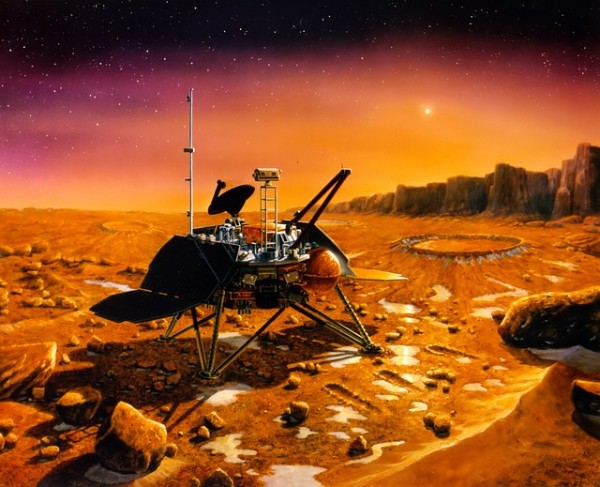By Ana Verayo, | October 20, 2016

The European Space Agency's ExoMars mission is a joint project between Europe and Russia.
Mission scientists are attempting to determine if the US $1.4 billion ExoMars lander touched down safely on the surface of the Red Planet on Wednesday, October 19.
Like Us on Facebook
The European Space Agency's ExoMars mission is a joint project between Europe and Russia.
The Trace Gas Orbiter is designed to analyze the atmospheric gasses on Mars, specifically methane. The Schiaparelli module will the pave way for another rover lander that will be launched in the second phase of the ExoMars mission in 2020.
The orbiter and module lander will both search for signs of past and present life on the dry and dusty planet.
However, mission scientists were expected to lose contact with the Schiaparelli lander when it entered Martian atmosphere on Wednesday at 11:12 a.m. EDT.
ESA mission scientists say that they obtained some initial signals from the Giant Metrewave Radio Telescope as the Schiaparelli lander began its descent on the surface of Mars. However, there is still no signal to confirm that it has made touchdown yet.
The team has made multiple attempts to obtain a confirmation of the lander's successful descent to the surface of Mars. However, Schiaparelli's status remains unknown.
When mission scientists analyzed a recording of the lander's descent taken from another ESA satellite the Mars Express, the data revealed inconclusive results.
ESA mission scientists now have to patiently wait as NASA's Mars Reconnaissance Orbiter will scan the surface of the alien world to locate the lander. The next update on the status of the lander will not be revealed on Thursday at 4 a.m. EDT.
There is, however, some good news as the ESA has confirmed that the Trace Gas Orbiter has been successfully inserted into the orbit of Mars.
Europe's last attempt to land a rover on Mars was in 2003 with the UK's Beagle 2 rover. Although it did successfully land on the surface, it never sent a signal since its solar panels failed to open to charge its batteries.
-
Use of Coronavirus Pandemic Drones Raises Privacy Concerns: Drones Spread Fear, Local Officials Say

-
Coronavirus Hampers The Delivery Of Lockheed Martin F-35 Stealth Fighters For 2020

-
Instagram Speeds Up Plans to Add Account Memorialization Feature Due to COVID-19 Deaths

-
NASA: Perseverance Plans to Bring 'Mars Rock' to Earth in 2031

-
600 Dead And 3,000 In The Hospital as Iranians Believed Drinking High-Concentrations of Alcohol Can Cure The Coronavirus

-
600 Dead And 3,000 In The Hospital as Iranians Believed Drinking High-Concentrations of Alcohol Can Cure The Coronavirus

-
COVID-19: Doctors, Nurses Use Virtual Reality to Learn New Skills in Treating Coronavirus Patients







